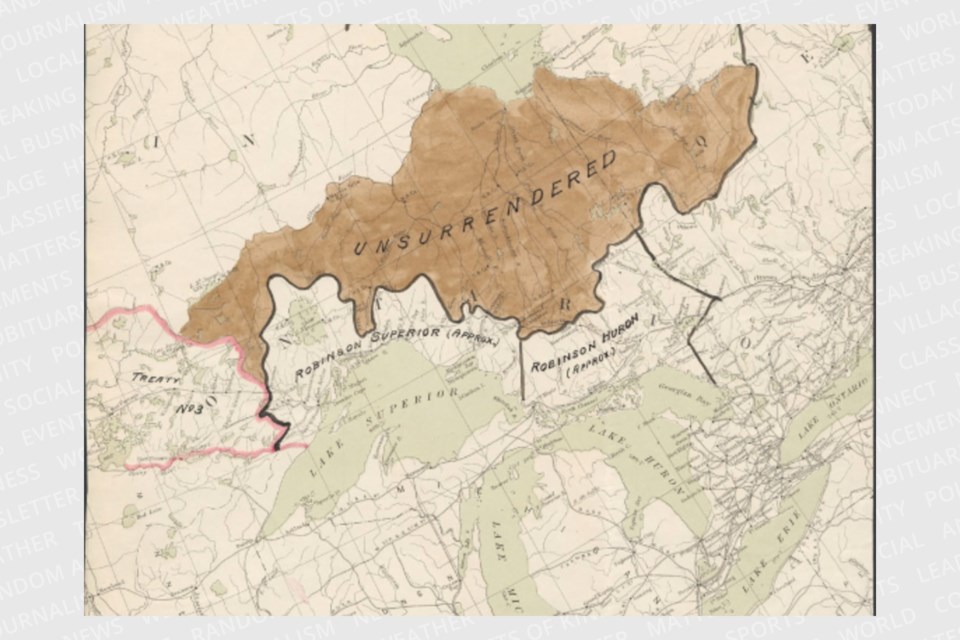The third stage of the Robinson Superior Treaty annuities trial continued at the University of Sudbury this week, with Dr. Jack Mintz, an economist specializing in public economics, the taxation of natural resources and related public policy, providing expert testimony on behalf of Canada.
Signatories to the Robinson Superior Treaty and the Robinson Huron Treaty — a pair of identical treaties signed in 1850 — have been in court fighting for an increase to treaty annuities.
While both cases have been heard in court simultaneously, Robinson Huron Treaty representatives are currently engaged in confidential settlement negotiations with Ontario and Canada.
Both groups are seeking billions of dollars in compensation after almost 150 years of receiving small annual payments in return for ceding much of Northern Ontario to the Crown.
After the first two stages of the trial, Ontario Superior Court Justice Hennessy ruled that the federal and provincial governments had to pay an increased annuity for both treaties that reflected a “fair share,” so long as there were enough resource-based revenues to do so without incurring a loss.
In both, the province’s Court of Appeal mostly upheld those decisions. But while the federal government let both rulings stand, the Province of Ontario is taking the decisions to the Supreme Court of Canada.
Economic experts, meanwhile, have been offering reports and testimony since February to help the court determine the amount of compensation and which Crowns are responsible for paying the increased annuities to Robinson Superior Treaty beneficiaries.
A director of Imperial Oil and President's Fellow of the School of Public Policy at the University of Calgary, Mintz has argued in court this week that spectrum — electromagnetic waves, like radio and cell phone frequencies — should not be included in the calculation of Net Crown Resource-based Revenue (NCRR), contrary to reports from economists who have previously testified for the Anishinaabe of the Superior area.
In his response to reports on resource revenues from Joseph Stiglitz and David Hutchings, Mintz argued that spectrum “doesn’t belong to geography” and therefore should not be included as a natural resource tied to the treaty territory.
“It’s not contained by a region or national boundary,” he told the court Monday.
A report by Innovation, Science and Economic Development Canada showed that more than $43 million in revenue has been generated by the Crown in Robinson Superior Treaty territory through auctioning off spectrum between 1999 and 2021, with another $26 million in spectrum-related, non-auction revenues collected by Canada between from 1999 to 2020.
But Mintz said that value is “overestimated” due to low population density and more than $12 million in management costs related to research, framework and regulations incurred by the Crown.
Economists testifying on behalf of treaty beneficiaries have argued that towers have been erected in order to harness electromagnetic waves, and are therefore linked to the land.
“I find that interesting, and this is where I disagree with them,” he said.
Mintz has argued the air doesn’t belong to the treaty territory as the ownership of land does not give ownership rights to air. Satellites, he added, travel far above the treaty territory in outer space, which is “common property to humankind.”
Mintz also told the court that calculating the value of resources based on economic rents has a number of limitations, making it “inappropriate” to assess augmented annuities for treaty beneficiaries, and that the findings of both Stiglitz and Hutchings “overstated valuation of economic rent.”
